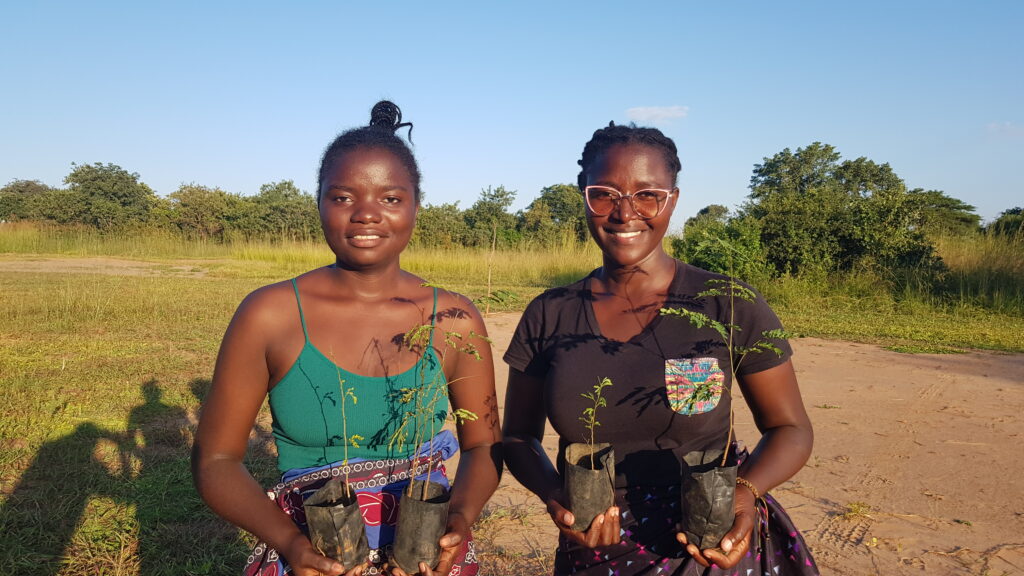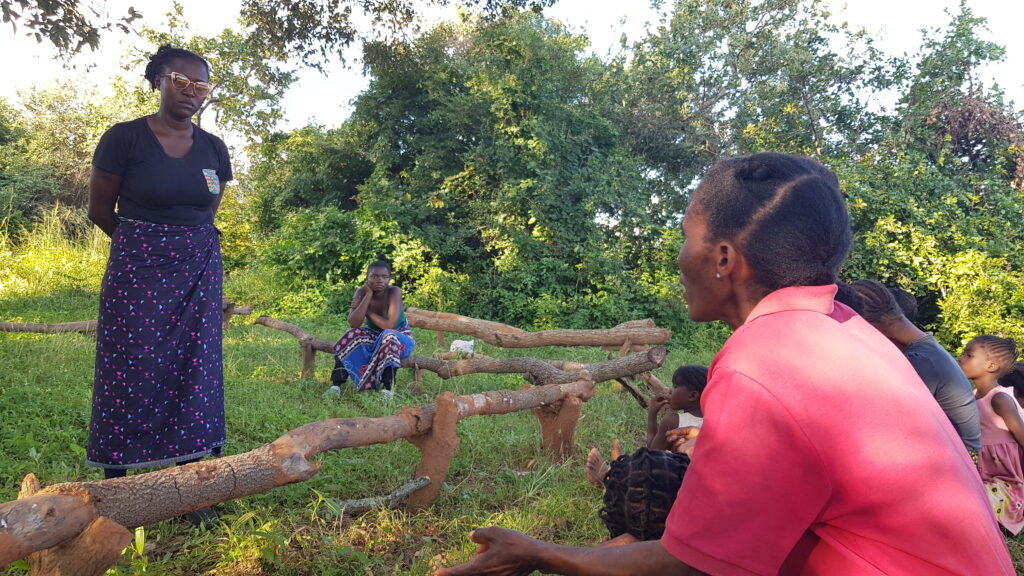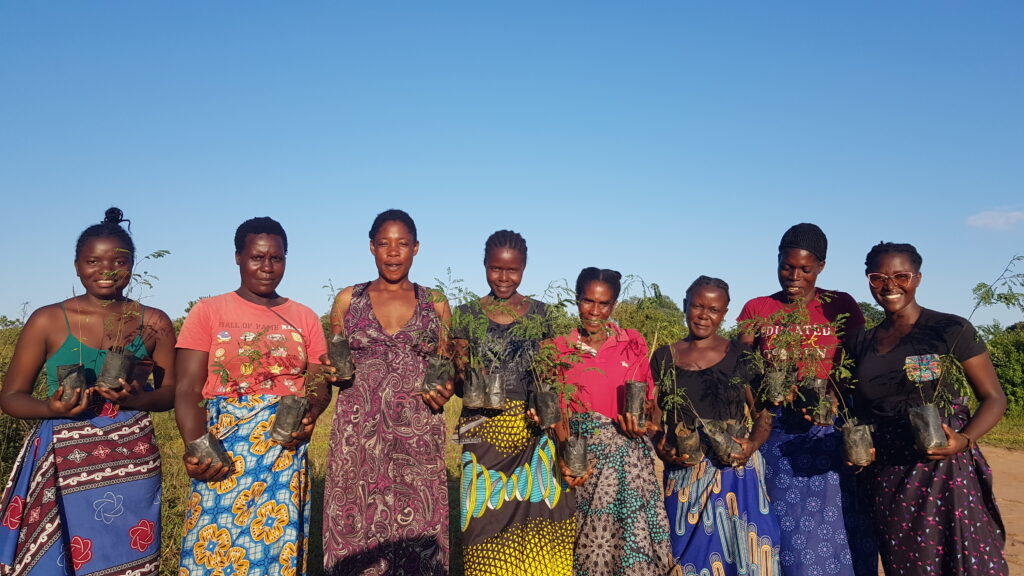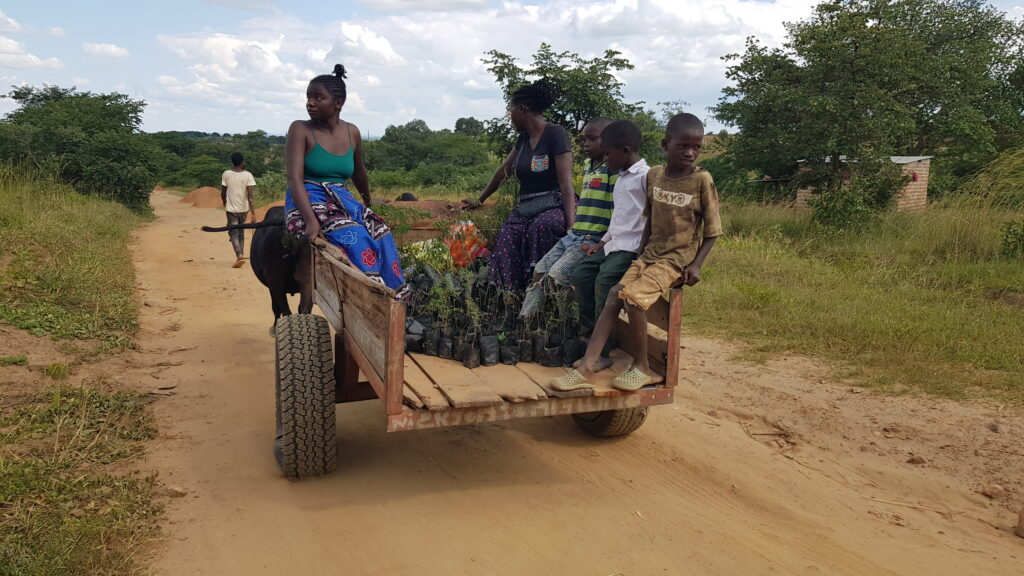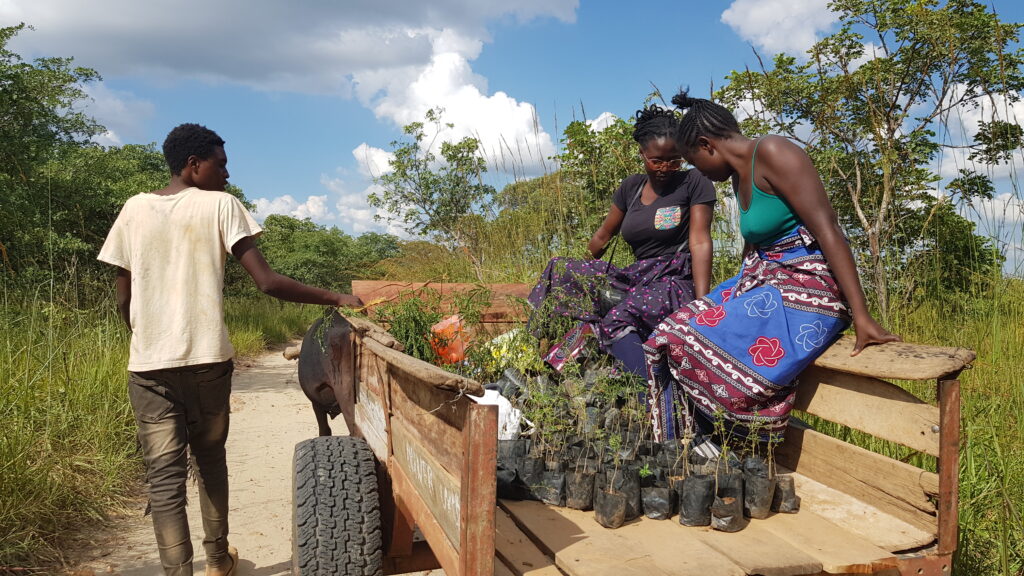We have been planting indigenous trees and raising climate awareness in Chisengu, Chikwela and Kapuka villages in Chongwe through trainings and meetings. In these meetings, women have taken the center stage – In attendance, in planting trees and in getting their voices heard.
In the first awareness meeting in a village called Chisengu located 15 kilometres from Chongwe town, it was the women who asked the most questions about agroforesty and the Leucaena, a nitrogen fixing tree that boosts crop yields when planted alongside maize. Where do the seeds for Luecaena come from? How deep should we plant the seedlings? Won’t the trees be competing with the maize for sunlight and water? How tall do the trees grow? Are you selling these seedlings?
A month later, when we went back to Chisengu to plant 1000, it was the women who took center stage again. This time, one woman, Agnita Chisengu, said the women in the village all show up whenever they hear about any tree planting project.
“We don’t want to be left out,” she said. “We have seen the effects of drought on our crops and most boreholes have dried up so if these trees are going to help us get better yeilds then we want to plant them.” She said.
That day more than 30 women out of a group of 55 villagers planted 700 trees.
We went back to Chisengu for the third time in March to plant 500 Musangu trees, only the women attended the climate awareness meeting and planted the trees.
It is a good indication that women are tired of being left behind of climate issues – after all, they are the most affected by climate occurrences like droughts because when crops fail, it is women and children that that suffer from malnutrition. When it comes to taking care of their households, they have to travel longer distances to fetch water, which is the case at Chisengu where many boreholes have dried up.
In the recent past, women were often left out of such meetings but from our discovery, when they are included, they have proved to provide valuable input because they usually speak from experience as they are the most affected by climate change, together with young people.
As we start the Chongwe Reforestation Initiative, a project that aims to equip indigenous people with skills to take climate action and protect their environment in Chongwe, we are including women from Chisengu in the design of the project.
The project is reforesting 10 square kilometers annually by planting Musangu (Faidherbia albida) and Mpasa (Julbernardia Globiflora) trees, raising awareness, and sinking boreholes to address water shortages due to drought. These boreholes will also serve a tree nurseries where villagers can water tree seedlings.
